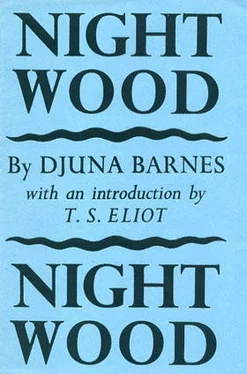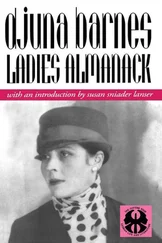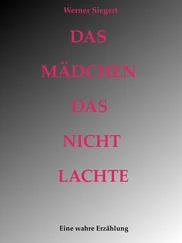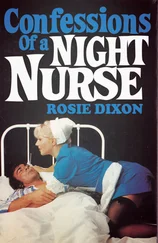She was known instantly as a Westerner. Looking at her, foreigners remembered stories they had heard of covered wagons; animals going down to drink; children’s heads, just as far as the eyes, looking in fright out of small windows, where in the dark another race crouched in ambush; with heavy hems the women becoming large, flattening the fields where they walked; God so ponderous in their minds that they could stamp out the world with him in seven days.
At these incredible meetings one felt that early American history was being re-enacted. The Drummer Boy, Fort Sumter, Lincoln, Booth, all somehow came to mind; Whigs and Tories were in the air; bunting and its stripes and stars, the swarm increasing slowly and accurately on the hive of blue; Boston tea tragedies, carbines, and the sound of a boy’s wild calling; Puritan feet, long upright in the grave, striking the earth again, walking up and out of their custom; the calk of prayers thrust in the heart. And in the midst of this, Nora—sitting still, her hand on her dog, the fire-light throwing her shadow against the wall, her head in shadow, bending as it reached the ceiling, though her own stood erect and motionless.
By temperament Nora was an early Christian; she believed the word. There is a gap in ‘world pain’ through which the singular falls continually and forever; a body falling in observable space, deprived of the privacy of disappearance; as if privacy, moving relentlessly away, by the very sustaining power of its withdrawal kept the body eternally moving downward, but in one place, and perpetually before the eye. Such a singular was Nora. There was some derangement in her equilibrium that kept her immune from her own descent.
Nora had the face of all people who love the people—a face that would be evil when she found out that to love without criticism is to be betrayed. Nora robbed herself for every one; incapable of giving herself warning, she was continually turning about to find herself diminished. Wandering people the world over found her profitable in that she could be sold for a price forever, for she carried her betrayal money in her own pocket.
Those who love everything are despised by everything, as those who love a city, in its profoundest sense, become the shame of that city, the détraqués, the paupers; their good is incommunicable, outwitted, being the rudiment of a life that has developed, as in man’s body are found evidences of lost needs. This condition had struck even into Nora’s house; it spoke in her guests, in her ruined gardens where she had been wax in every work of nature.
Wherever she was met, at the opera, at a play, sitting alone and apart, the programme face down on her knee, one would discover in her eyes, large, protruding and clear, that mirrorless look of polished metals which report not so much the object as the movement of the object. As the surface of a gun’s barrel, reflecting a scene, will add to the image the portent of its construction, so her eyes contracted and fortified the play before her in her own unconscious terms. One sensed in the way she held her head that her ears were recording Wagner or Scarlatti, Chopin, Palestrina, or the lighter songs of the Viennese school, in a smaller but more intense orchestration.
And she was the only woman of the last century who could go up a hill with the Seventh Day Adventists and confound the seventh day—with a muscle in her heart so passionate that she made the seventh day immediate. Her fellow worshippers believed in that day and the end of the world out of a bewildered entanglement with the six days preceding it; Nora believed for the beauty of that day alone. She was by fate one of those people who are born unprovided for, except in the provision of herself.
One missed in her a sense of humour. Her smile was quick and definite, but disengaged. She chuckled now and again at a joke, but it was the amused grim chuckle of a person who looks up to discover that they have coincided with the needs of nature in a bird.
Cynicism, laughter, the second husk into which the shucked man crawls, she seemed to know little or nothing about. She was one of those deviations by which man thinks to reconstruct himself.
To ‘confess’ to her was an act even more secret than the communication provided by a priest. There was no ignominy in her; she recorded without reproach or accusation, being shorn of self-reproach or self-accusation. This drew people to her and frightened them; they could neither insult nor hold anything against her, though it embittered them to have to take back injustice that in her found no foothold. In court she would have been impossible; no one would have been hanged, reproached or forgiven, because no one would have been ‘accused’. The world and its history were to Nora like a ship in a bottle; she herself was outside and unidentified, endlessly embroiled in a preoccupation without a problem.
Then she met Robin. The Denckman circus, which she kept in touch with even when she was not working with it (some of its people were visitors to her house), came into New York in the fall of 1925. Nora went alone. She came into the circle of the ring, taking her place in the front row.
Clowns in red, white and yellow, with the traditional smears on their faces, were rolling over the sawdust, as if they were in the belly of a great mother where there was yet room to play. A black horse, standing on trembling hind legs that shook in apprehension of the raised front hooves, his beautiful ribboned head pointed down and toward the trainer’s whip, pranced slowly, the fore-shanks flickering to the whip. Tiny dogs ran about trying to look like horses, then in came the elephants.
A girl sitting beside Nora took out a cigarette and lit it; her hands shook and Nora turned to look at her; she looked at her suddenly because the animals, going around and around the ring, all but climbed over at that point. They did not seem to see the girl, but as their dusty eyes moved past, the orbit of their light seemed to turn on her. At that moment Nora turned.
The great cage for the lions had been set up, and the lions were walking up and out of their small strong boxes into the arena. Ponderous and furred they came, their tails laid down across the floor, dragging and heavy, making the air seem full of withheld strength. Then as one powerful lioness came to the turn of the bars, exactly opposite the girl, she turned her furious great head with its yellow eyes afire and went down, her paws thrust through the bars and, as she regarded the girl, as if a river were falling behind impassable heat, her eyes flowed in tears that never reached the surface. At that the girl rose straight up. Nora took her hand. ‘Let’s get out of here!’ the girl said, and still holding her hand Nora took her out.
In the lobby Nora said, ‘My name is Nora Flood,’ and she waited. After a pause the girl said, ‘I’m Robin Vote.’ She looked about her distractedly. ‘I don’t want to be here.’ But it was all she said; she did not explain where she wished to be.
She stayed with Nora until the mid-winter. Two spirits were working in her, love and anonymity. Yet they were so ‘haunted’ of each other that separation was impossible.
Nora closed her house. They travelled from Munich, Vienna and Budapest into Paris. Robin told only a little of her life, but she kept repeating in one way or another her wish for a home, as if she were afraid she would be lost again, as if she were aware, without conscious knowledge, that she belonged to Nora, and that if Nora did not make it permanent by her own strength, she would forget.
Nora bought an apartment in the rue du Cherche-Midi. Robin had chosen it. Looking from the long windows one saw a fountain figure, a tall granite woman bending forward with lifted head, one hand was held over the pelvic round as if to warn a child who goes incautiously.
Читать дальше












